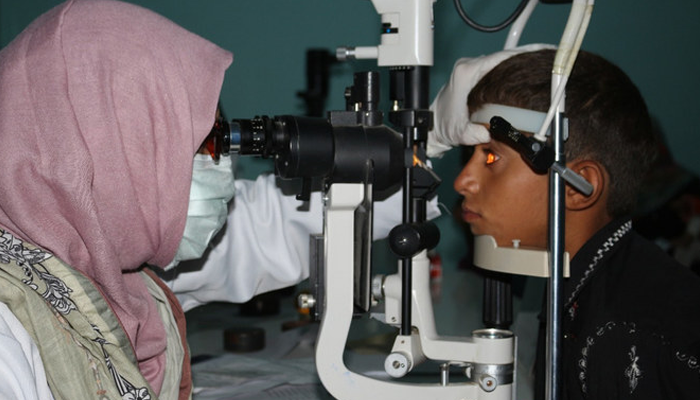Punjab's Minister for Primary and Secondary Healthcare, Dr. Jamal Nasir, has issued a warning to the public in response to the ongoing outbreak of conjunctivitis, commonly known as "pink eye," in the province.
Dr. Nasir, speaking with PTV news, cautioned individuals against resorting to self-medication for pink eye. Instead, he advised patients to use prescribed eye drops and tissues for eye cleansing. He also emphasized the importance of using hand sanitizers as a precautionary measure to prevent the highly contagious infection.
The minister stressed that self-medication should be avoided as it could harm the eyes.
Addressing the outbreak of pink eye in the province, Dr. Nasir noted that the infection is spreading rapidly in densely populated urban areas where people are exposed to less-than-ideal environments such as factories, markets, bazaars, and shopping centers.
Highlighting the safety guidelines issued by the health department, the minister stated that all hospitals in Punjab have been alerted to make necessary arrangements in their ophthalmology and outpatient departments to handle the surge in cases.
Furthermore, Dr. Nasir mentioned that the health department has already issued safety guidelines to manage the disease.
In response to a question, he advised all patients with eye-related ailments to visit government hospitals where eye specialists have been instructed to remain on duty.
The number of cases of viral conjunctivitis, or "pink eye," has neared 100,000 in Punjab within a short span, raising concerns over the highly contagious infection. In rare cases, this infection can lead to chronic inflammation of the cornea, resulting in permanent vision problems.
According to sources within the health department, a total of 10,269 cases of eye infection were reported in the last 24 hours, surpassing the 90,000 mark. The highest number of pink eye cases were reported in Bahawalpur, with 1,540 cases, followed by 1,132 in Faisalabad, 1,048 in Multan, 608 in Rahim Yar Khan, and 452 patients in Lahore.
Conjunctivitis typically affects both eyes and presents symptoms such as redness, burning or grittiness, pus production sticking to lashes, itching, and watering.









